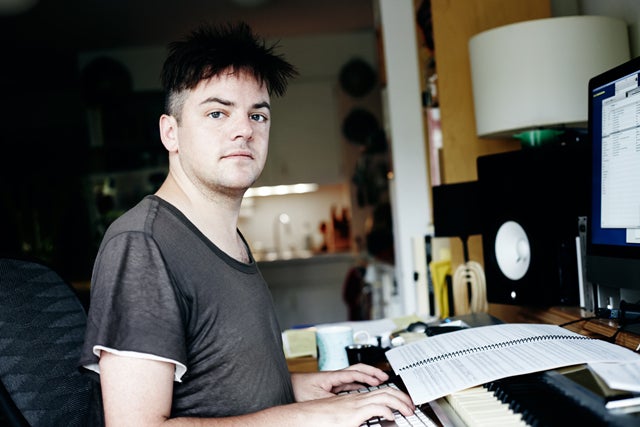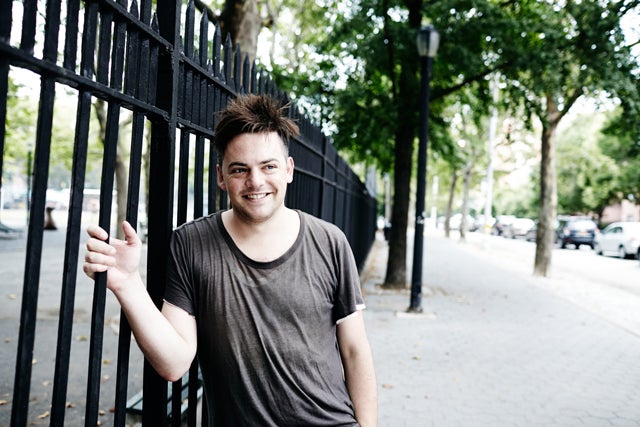The Great Maestro Of The Lower East Side
 Photographed by Winnie Au
Photographed by Winnie Au
 Photographed by Winnie Au
Photographed by Winnie Au
Big Switch
“I started composing when I was like 10; I had been singing in a church choir in Providence, RI, and was taking piano lessons like all good little boys. I wasn’t particularly talented at either, but then suddenly one spring, everything sort of emulsified, and I was wildly in love with all the music I was playing and singing. This immediately turned into me writing things down, little improvisations that then started having shapes.”
Chill Out
“I’ve found that cooking is always good, because it imposes a ministructure on the day: Rotate the meat in its marinade, skim the stock, chill the prosecco. But less glamorously, cooking is a sort of [an] easily realizable goal inasmuch as the whole thing culminates in something that makes everybody really happy. Usually.”
In Cahoots
“For me, collaborative situations are always a welcome change from the ‘blank slate’ kind of commissions, where people say, ‘Here’s a small pile of money, and give us 18 minutes of orchestra music.’ In general, making an arrangement for Grizzly Bear or Jónsi [from Sigur Rós] is like being asked to dress somebody: One doesn’t want to call attention to oneself but rather to the artist. So, it’s a sort of erasure of the composer/arranger. An opera is slightly different, because there are so many moving parts that there is a feeling of the sorcerer’s apprentice about it.”
“Make Yourself Useful”
“The thing that [Philip Glass] taught me is to surround yourself with a community of musicians and to make yourself useful. The composer is a part of — and responsible to — a community. That’s a radical change from the idea of the composer as romantic visionary taking ayahuasca in the woods and being an impossible genius.”
Gap Year
“For a year, I didn’t enter any competitions for new music, any weird grants, any awards. I worked for Philip, wrote sacred music, played piano for anybody who asked, wrote anything for anybody. It was terrifying, and I was kind of riding a wave of negativity after losing a million awards and grants the year before. Then to sort of take myself out of it was a huge risk. But it ended up being great, and I started making music that I knew I could get performed, because it was for friends and for people I knew.”






